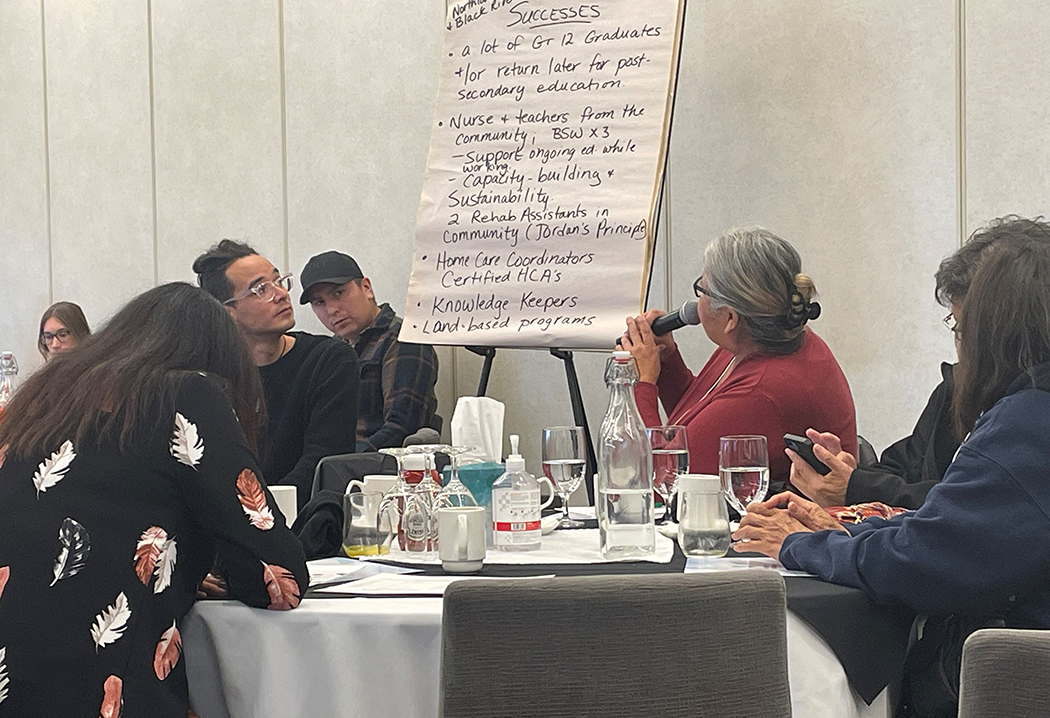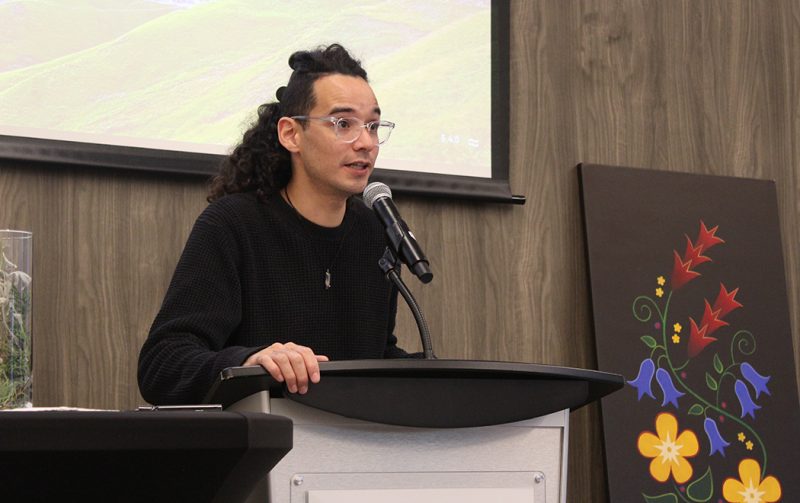
College of Rehabilitation Sciences celebrates connectedness with First Nations communities
In October, the College of Rehabilitation Sciences held its seventh ‘Kiga mamo anokimin onji minoayawin/ Ka mamwi atoskatenow minoaywin/ We will work together for health and wellness’ community retreat with members of Manitoba First Nations communities.
The name includes translations in both Ojibway and Cree and reflects the reach of the partnership between the college and communities. The venture began in 2017 with five communities and has grown to 12 with the recent additions of Black River First Nation, Northlands Denesuline First Nation and Canupawakpa Dakota Nation. Eleven of those communities were represented at the retreat, which was held at Wyndham Garden Winnipeg Airport, situated on the Long Plain Madison Reserve No. 1.
The partnership’s goal is to bring the college’s services to the communities, based on their self-identified needs and priorities.
In total, about 55 people attended the retreat, including community representatives and faculty and staff from the college. Guests included Elders from the Star Blanket and Cowessess First Nation communities in Saskatchewan, faculty from the University of Saskatchewan and guests from the Riverview Health Centre and the Heart and Stroke Foundation of Canada.
The first day focused mostly on a discussion on how to help people with lived experience with addiction who are returning to their community. The discussion ended with a draft model of aftercare that could form a collaborative project between interested communities and the Universities of Manitoba and Saskatchewan.

Michael Redhead Champagne
Emcee Michael Redhead Champagne, an Ininiw public speaker, writer and community advocate, also highlighted some of the partnership’s successes since it began.
Since 2017, over $5 million in projects have happened either directly or indirectly from the partnership, 82 students have come to communities to learn and be of service, 16 faculty have been involved and 10 community members have been employed as part of the projects.
Marlene Head, post-secondary counsellor for Opaskwayak Education Services in Opaskwayak Cree Nation (OCN), noted that three students from her community enrolled in the college’s occupational therapy program this year. However, she said, that is not enough to meet the demand in the community, or in other First Nations.
Head gave a presentation on a project focused on educating specialists in occupational therapy, physical therapy, school psychology and speech language pathology directly in First Nations communities. The initiative, titled Grow Our Own Specialists through Education (GOOSE), started two years ago from conversations at previous meetings.
Head said there is a dire need for specialists in OCN, and likely other First Nations communities.
“We are starting to see a lot of students with exceptionalities in OCN – somewhere between 30-35 per cent of the population of both of our schools. We have to stop relying on others and meet the demand for specialists ourselves,” Head said, adding there are barriers that make it difficult for some people to move to Winnipeg to train in a health-related field.
“First Nations should not have to ‘fit’ educational institutions, educational institutions have to ‘fit’ First Nations,” she said.
Currently, the initiative is working with the college and UM’s school psychology program in the Faculty of Arts to offer programs via Indigenous cohorts. Head is hopeful that a part-time master’s program in school psychology could be offered to an Indigenous cohort by Summer 2024.
At the retreat, Head invited members of other communities to join the initiative.
“GOOSE will provide opportunities for all, especially those who are working, mature and cannot move to the city on a living allowance,” she said.
“Through this initiative, First Nations can work together in prioritizing programs and open up to community members from different First Nations, which would eliminate duplication and be more efficient.”
The retreat concluded with a celebration highlighted by a spirited performance from the Kinew Metis Council Youth Dancers.
Dr. Reg Urbanowski, dean of the College of Rehabilitation Sciences in the Rady Faculty of Health Sciences, said the gathering was a huge success, with people sharing their experiences, wisdom and knowledge.
“It is clear after all this time that there is a connectedness between the communities, the college and the guests who were present. This speaks highly to activities identified in the future.”
Watch a social media video of highlights from the retreat.






